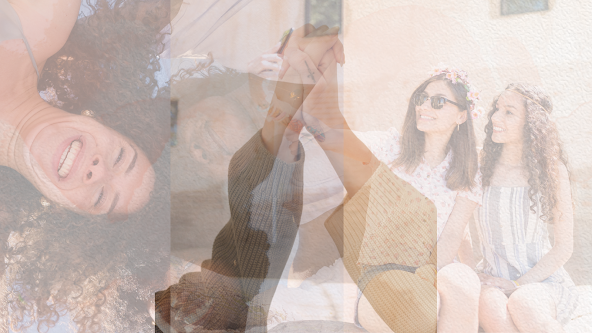A Care Leaver’s Reflection on Othering
I have spent a lot of time reflecting on one quiet truth that we care leavers have sometimes grown up Othering ourselves.
Not because we want to. Not because we believe we are less than.
But because we come from systems where being “different” is how we were identified, described, and often even supported and somewhere along the line, we started to believe it.
That our pain was unusual.
That our gaps were greater.
That our stories needed to be hidden or packaged just right to be accepted.
This blog is not about blaming others. It's about understanding ourselves. It’s about affirming that while care experience is unique, we must also remember: life in families isn’t free from struggle either.
So how we begin Othering ourselves
Growing up in care, whether it was foster care, institutional care, or kinship care meant we learned to define ourselves in relation to a system - case files, staff roles, checklists, transitions, and assessments.
We often heard
“These are your special needs.”
“You are from the system.”
“You’re doing well despite your background.”
So we began to see ourselves not as just young people but as young people with labels and somewhere deep inside, we internalized- “I’m not like them. I’m from care.” Without realizing it, we began Othering ourselves, even before society had the chance. We would enter a classroom and hesitate to share our story.
We’d apply for housing and dread being asked about family details. We’d walk into youth spaces and feel invisible unless our pain was made visible.
A session that changed my view
In 2024, during a National Care Leaver Workshop, a mentor had session on Concept "Othering" she shared example that created a deep pause that “Sometimes, we feel othered not because people want to exclude us but because we expect to be excluded. We carry that fear first.” That day, I began to reflect. When I walk into a room, am I entering as Surja, or as Surja, Care Leaver, outsider, different, watch out? The honest answer is most times, the second one. That moment helped me understand something crucial. If we continue to Other ourselves, we create space for others to see us that way too.
We often say, “They don’t understand, we grew up without families.” But as I have listened more and grown closer to people from different walks of life, I have learned family doesn’t always mean ease. Yes, our pain is valid. Yes, we have survived systems that were supposed to protect us. But families also hold:
Silence.
Abuse.
Abandonment.
Emotional absence.
We sometimes idealize family life because we didn’t have it. But when we believe our struggle is too different, we risk disconnecting from shared humanity. What if, instead of “I am different,” we began to say, “I come from care, and I carry deep strength and so do many others, from different kinds of pain.” That shift doesn’t erase our care experience. It adds depth to our understanding.
Let me share a personal moment.
I was once introduced as a “motivational Care Leaver speaker” at a youth event. I felt proud but also boxed. Later, one girl from the audience came up and said, “I thought you’d have a sad story. But you’re actually really normal?”
I smiled, but I also realized something:
Even when I speak, I often lead with my trauma. Because that’s what I think people expect. That’s how I believe they will relate. That’s how I other myself by reducing my identity to survival.
What if I began with joy? With my dreams? With my favorite books?
What if we all did that?
Let’s change our inner language from “I am different because I’m from care”
to “I have a different experience, but I am just as human, just as complex, just as whole.” We sometimes push others away, thinking they won’t understand. We judge those from families who say, “I had a hard childhood too.” We may think: “You had parents, you had privilege. You don’t know.” and yes, privilege is real.
But so is pain.
So is mental health.
So is identity confusion.
So is emotional neglect.
When we compare who had it “worse,” we build walls. When we listen to each other’s stories without competition, we build bridges. We don’t need to be the same to stand together. We only need to believe that pain has many faces and so does resilience.
Dear care leaver reading this
You are not “the Other.”
You are not a story to be pitied.
You are not someone who has to explain their worth.
You are part of the world not outside it.
You are allowed to have joy that isn’t attached to your past.
You are allowed to connect, to struggle, to be heard, and to belong.
You are not just from care, you are from hope.
From resistance.
From quiet victories nobody saw and from a future you are still building.
We are here to rewrite what it means to grow up in care.
We are here to remind the world that family is not only blood, it is bond, support, truth.
Let’s affirm - We belong, we matter and we are not less than anyone.
We are not Other, we are Each Other.
.png)

.png)
Comments
Post a Comment